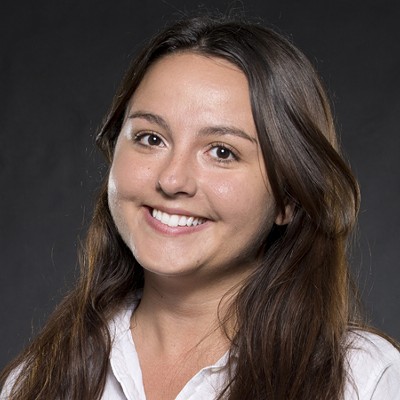As Kendall’s population has spiked in recent decades to more than 75,000, the suburb's sprawling fields and swampland have disappeared to make way for more townhouses and strip malls. Already facing overcrowding and traffic, residents there are now fighting to keep two of West Kendall’s last green spaces — the Calusa Country Club and the Miccosukee Golf Club — from being developed.
“These two West Kendall golf courses are just 20 blocks apart from each other and facing development,” says Michael Rosenberg, president of the Kendall Federation of Homeowner Associations (KFHA). “They’re beautiful and expansive lands, like a wildlife refuge. There are foxes and raccoons that live on them.”
Although both of the golf courses are private property, a little-known covenant from 1972 prevents development on both green fairways until 2071 — a perk that persuaded Rosenberg to purchase his property that borders the Calusa Country Club.
But ever since the 2008 recession, golf courses across the nation are losing money and falling into disrepair. Now the owners of both West Kendall golf courses are trying to wiggle out of their 99-year zoning agreements, and many residents are outraged.
“We bought our homes for what was behind them: those beautiful, expansive lands,” Rosenberg says. “If they’re failing, we shouldn’t be punished.”
In 2001, the Miccosukee Tribe of Indians purchased the golf course on Kendale Lakes Drive at SW 137th Avenue. In 2003, they applied to the federal government to convert it into reservation land, which would free them of the 99-year development ban. In 2012, the U.S. Department of the Interior’s Bureau of Indian Affairs approved the tribe’s request. But that decision was vacated a year later after heated opposition by thousands of Kendall residents, who feared that the tribe would build a casino on the land.
“The main concern is turning a green area into a building,” says Miles Moss, who serves on the KFHA board. “There was a whole bunch of other issues: drainage, police control, land use. There’ll be added traffic.”
Sitting two miles south of the Miccosukee's property, near Kendall Drive and SW 137th Avenue, the Calusa Country Club is owned by a company connected to Facundo Bacardi, chairman of the leading rum brand. His group purchased the course in 2003, but Rosenberg says that after hurricanes Katrina and Wilma pummeled the clubhouse, the golf course has fallen into disrepair and is now closed. In 2011, the owners offered to pay residents $50,000 so they could build a senior living center on the land. But not enough residents accepted.
“The property values would go down by more than that,” Rosenberg says. “Pretty much everyone is against this.”
For years, residents thought both fights were over. But in 2014, the Miccosukee resubmitted their request. Then, this May, the owners of the Calusa Country Club put in another request to develop the 168 acres and build 1,100 homes.
Moss and Rosenberg urge county and state officials to prevent either proposal from being approved. Moss says he has invited elected officials and the Miccosukee to a public forum to hear from residents and their concerns, but has had no luck. (A message to the Miccosukee has not been returned. Attorney Brian S. Adler, who represents the owners of Calusa Country Club, has not responded to a message requesting comment on that property's future.)
“It’s frustrating,” Moss says. “If they’d attend a public hearing, they’d see hundreds of people show up. This affects all of our homes.”
Rosenberg adds, “If the business is failing, they should donate the land to the county and turn it into a park."
[
{
"name": "Air - MediumRectangle - Inline Content - Mobile Display Size",
"component": "19274298",
"insertPoint": "2",
"requiredCountToDisplay": "2"
},{
"name": "Editor Picks",
"component": "17482312",
"insertPoint": "4",
"requiredCountToDisplay": "1"
},{
"name": "Inline Links",
"component": "18711090",
"insertPoint": "8th",
"startingPoint": 8,
"requiredCountToDisplay": "7",
"maxInsertions": 25
},{
"name": "Air - MediumRectangle - Combo - Inline Content",
"component": "17482310",
"insertPoint": "8th",
"startingPoint": 8,
"requiredCountToDisplay": "7",
"maxInsertions": 25
},{
"name": "Inline Links",
"component": "18711090",
"insertPoint": "8th",
"startingPoint": 12,
"requiredCountToDisplay": "11",
"maxInsertions": 25
},{
"name": "Air - Leaderboard Tower - Combo - Inline Content",
"component": "17482313",
"insertPoint": "8th",
"startingPoint": 12,
"requiredCountToDisplay": "11",
"maxInsertions": 25
}
]











